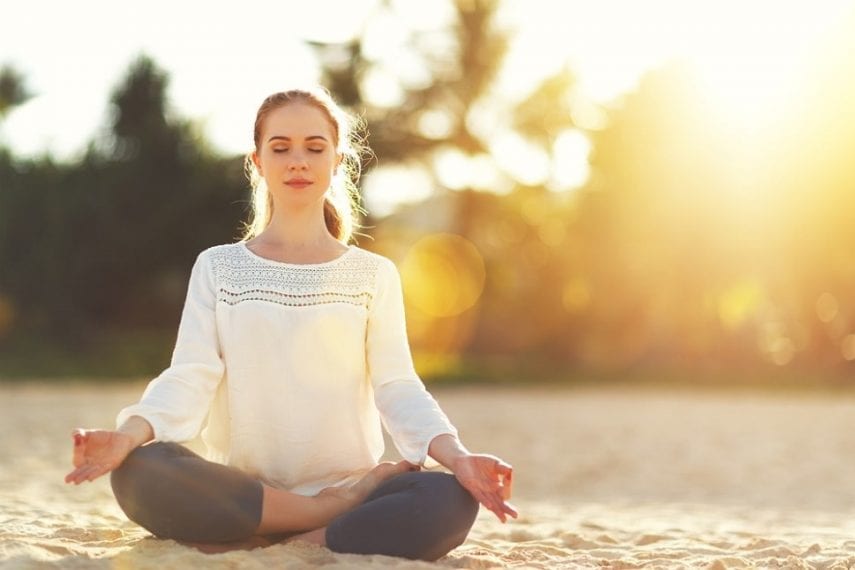Do Alternative Mental Health Therapies Really Work? Why a Holistic Approach Is Best

The best mental health treatment plan is one that is curated to the individual and one that they are able to engage with and commit to. Complementary and alternative therapies help to round out a treatment path and to expand the options for truly individualized care. Knowing what to expect from an integrative treatment approach can initiate feelings of empowerment and hope.
The journey to mental health recovery is a very personal one. The best treatment plans are designed specifically for each individual. And each person responds differently to medication and psychotherapy options. With treatment, there is often a give and take of benefits and side effects. But with careful clinical attention, it’s possible to find the very best balance of therapies, lifestyle changes, and support systems so that a client can feel empowered in their progress.
A holistic approach to mental health is referring to this kind of balance. A holistic treatment plan takes into account the multi-dimensionality of a person and their life. And, depending on what the individual needs, this approach draws from a range of treatment options, including medications, psychotherapy, group therapy, goal-setting, habit-building, life skills training, nutritional planning and supplementation, and alternative and experiential therapies.
When asking, do alternative therapies really work?—again, the truth depends on the person. With the help of thoughtful clinicians, it is worth exploring diverse therapy options available to discover how they might work together and improve your quality of life.
Do Alternative Therapies Really Work for Mental Health Disorders?
As with any specific treatment option, the efficacy of alternative, or complementary, therapies for mental health may vary from person to person. And the intention of these approaches may be just as creative as the therapies themselves.
Alternative therapies may be indicated to:
- Treat symptoms of mental health disorders
- Lessen side effects from medications or other treatments
- Promote relaxation
- Assist with a client’s engagement in treatment
- Develop an empowered mind-body connection
- Support an all-around healthy lifestyle in recovery
Sometimes, people choose to prioritize alternative therapies instead of traditional clinical approaches. Sometimes, people add alternative treatments to their clinical options. The best route is to integrate the various types of treatment in a dynamic way that really responds to an individual’s diverse needs.
Typically, alternative therapies have minimal side effects, so it’s positive to try out different options. A clinician can help to monitor your progress and your response to these treatments. They can also recommend alternative therapies to try that you may not be aware of, broadening your range of available options.
Here are some common alternative therapies that often help to round out an integrative treatment plan for someone’s optimal mental health:
- Acupuncture can benefit your sleep, digestion, experiences of pain and tension, anxiety, endorphin release, and overall sense of well-being.
- A drumming group combines the benefits of music therapy and welcoming community reduce stress and anxiety, lower your heart rate and blood pressure, ease pain, and inspire positivity, confidence, and self-expression.
- Massage can bring relief from pain and tension, improve immune function and circulation, minimize stress, connect your mind and body experiences, and enhance sleep, self-awareness, and mood.
- Meditation refers to a very wide range of techniques that can promote relaxation, positive energy, emotional stability, self-awareness, mind-body connection, serotonin production, cognitive fitness, and healthy blood pressure.
- Physical fitness also represents diverse activities for you to expend energy in positive directions, decrease symptoms of depression and anxiety, get better-quality sleep, feel confident and empowered, gain self-awareness and connection between your mind and body, relieve tension, and enhance your strength, immune system, and overall physical health.
- Pottery is a form of art therapy that awakes creativity and self-expression, promotes healthy blood pressure and heart rate, exercises cognitive and physical dexterity, encourages confidence and a sense of accomplishment, and offers a constructive outlet for challenging thoughts and feelings.
- Yoga is a very adaptable practice that can benefit your strength, endurance, flexibility, sleep, immune system, emotional regulation, stress reduction, self-awareness, mind-body connections, focus on the present moment, and your positivity and sense of empowerment.
Call for a Free Confidential Assessment.
877-727-4343What Can You Expect from a Holistic Treatment Approach?
Even traditional and clinical approaches to mental health are diverse. Especially when it comes to psychotherapy, available modalities allow clinicians to cater treatment to each client’s needs. Many of the holistic benefits possible through alternative therapies are also possible with psychological and behavioral therapies. But, again, each individual responds differently to treatment. Fortunately, leading mental health treatment centers offer a comprehensive approach. In this vein, clinicians take the time to get to know a person and all aspects of their life, their past, and their hopes for the future.
With this well-rounded perspective, clinicians are able to prescribe well-rounded treatment options and ensure that each client is on the very best path to recovery. With trauma, for example, a person may make progress with a therapist by gradually approaching and restructuring their relationship to that trauma. But, simultaneously, they may benefit immensely from yoga and meditation to help reconnect them with their body as traumatic memories are unwinding there as well. Hope comes from opportunities that empower someone to look forward with greater awareness and confidence in recovery. And with individualized care, each person really can discover the recovery path that inspires empowered hope.
Bridges to Recovery offers comprehensive treatment for people struggling with mental health disorders as well as co-occurring substance use disorders, eating disorders, and process addictions. Contact us to learn more about our renowned Los Angeles programs and how we can help you or your loved one start the journey toward healing.






